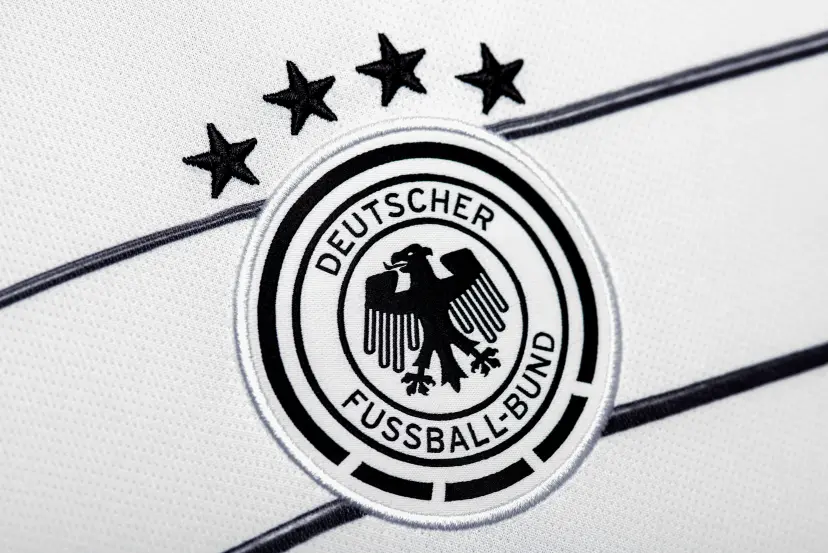Champions League: Analysis of the 2023/24 group stage
Published:
The key stats ahead of the Champions League group stage
The Champions League group stage is nearly upon us, with Europe’s top teams set to go head-to-head in the world’s premier club competition.
Will Manchester City make a successful defence of their title? Can Harry Kane achieve a career ambition by winning the Champions League with Bayern Munich? Will Jude Bellingham inspire Real Madrid to another deep run? How will Newcastle fare in their first season back in the big time since 2002-03?
We have analysed the draw and studied group-stage results across the past 20 seasons to predict what might happen in this year’s competition.
Who has the easiest and toughest draws?
Using UEFA’s club coefficients, we can rate the difficulty of each club’s group stage draw.
Group B – containing Europa League winners Sevilla, Premier League runners-up Arsenal, plus PSV and Lens – is the easiest on paper.
Sevilla finished 12th in La Liga last season and have failed to get out of the group in their past two Champions League campaigns. Arsenal and PSV are returning to the competition following six and four-year absences respectively, while Lens are playing in it for the first time since 2002-03.
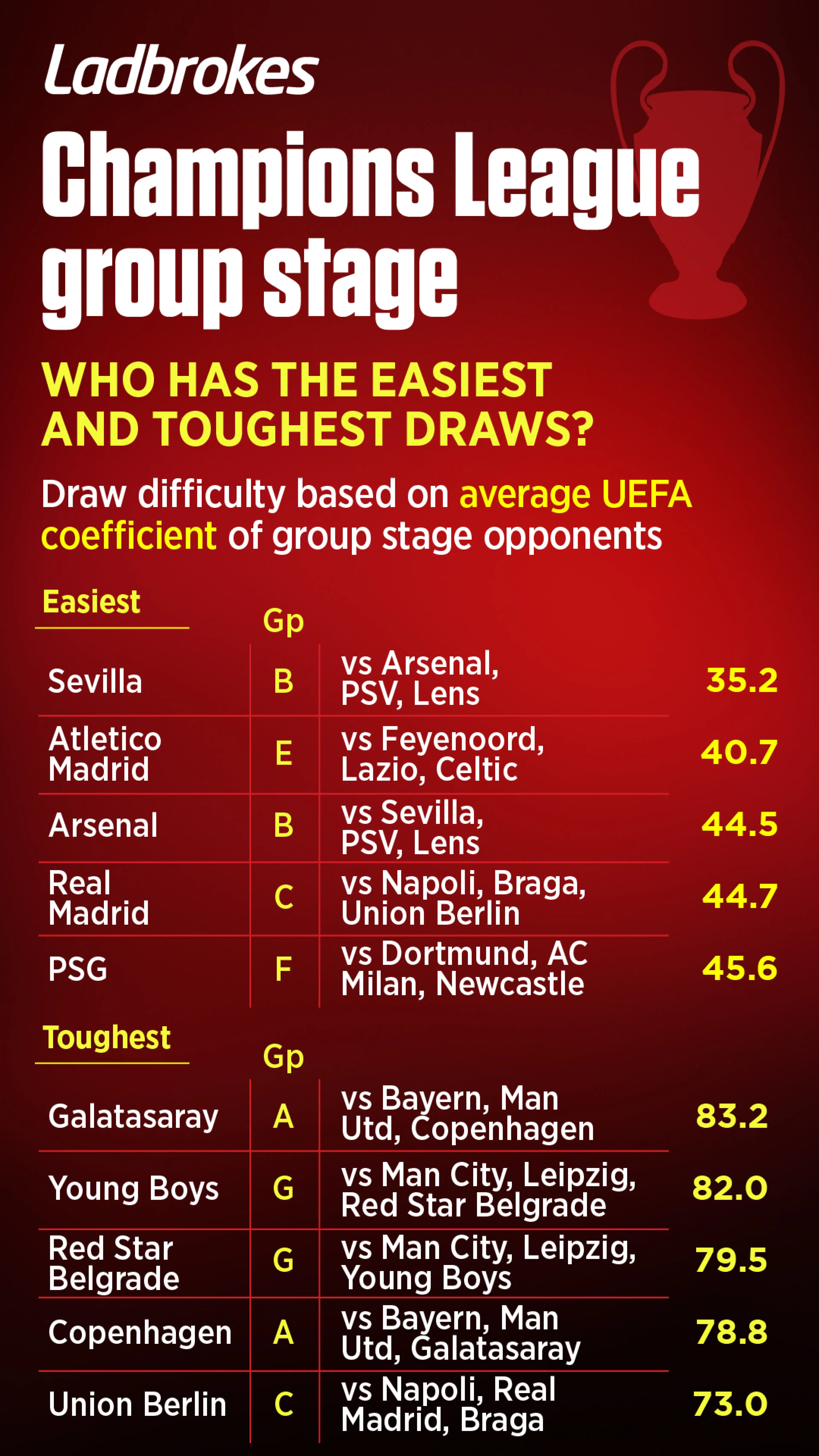
According to UEFA rankings, the top two sides in Europe – Manchester City and Bayern Munich – have been drawn in Groups G and A respectively.
City will face RB Leipzig, Red Star Belgrade and Young Boys, while Bayern will play Manchester United, Copenhagen and Galatasaray.
Newcastle – returning to the Champions League for the first time in 21 years – are in Group F alongside some of the biggest names in European football. The Magpies will welcome PSG, Borussia Dortmund and AC Milan to St James’ Park.
Which nations tend to do well?
Since the current 32-team format was introduced, Premier League clubs have led the way, averaging just under two points per game.
The remaining four of the ‘big five’ European leagues come next, with teams from La Liga earning 1.83 points per game on average, ahead of the Bundesliga (1.70), Serie A (1.65) and Ligue 1 (1.46)
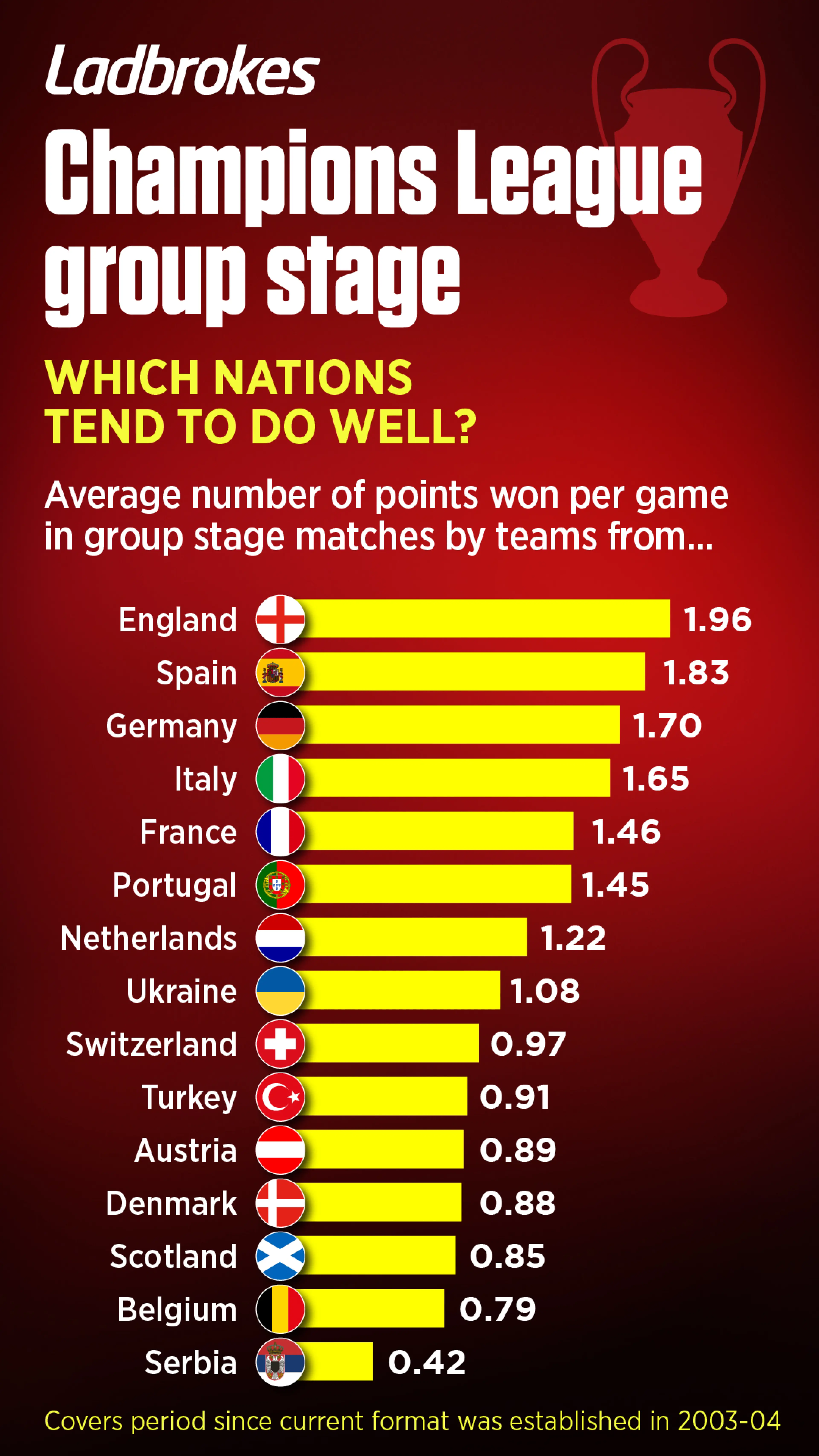
At the other end of the spectrum, Serbian SuperLiga clubs have struggled the most among leagues represented in this year’s competition. Their average of 0.42 points per game is barely half of the next-lowest ratio – 0.79 by teams from the Belgian Pro League.
Who has the best and worst records?
It’s a different story when looking at individual clubs, however.
The stats suggest that Kane has almost guaranteed himself knockout Champions League football by joining Bayern Munich. The Bavarian giants have reached the round of 16 in each of the last 15 seasons, topping the group on 12 of those occasions and averaging a whopping 2.32 points per game across the last two decades.
Real Madrid – five-time winners during that period – have an even better record of reaching the knockout phase, having done so in the last 20 consecutive seasons. That said, their progress has rarely been as emphatic as Bayern’s, at an average of 2.19 points per game.
With the likes of Chelsea and Liverpool missing out on qualification for this year’s tournament, defending champions Manchester City are the only English team in the top five. City (1.96) fall just below the two points-per-game mark, behind Barcelona (2.16) and PSG (2.08).

Red Star Belgrade have the worst group-stage record among teams to have played at least 12 matches in our 20-year sample. The Serbian outfit managed two wins, one draw and nine losses in 2018-19 and 2019-20.
Scottish champions Celtic also average fewer than a point per game in the group stage. They have failed to get out of the group in four attempts since their most recent last-16 appearance in 2012-13.
How many points are needed to qualify?
The old cliché of needing 10 points from six games to secure qualification is not always accurate.
Since 2003-04, the majority of teams finishing on nine points in the group stage have reached the round of 16, while two sides – Zenit St Petersburg in 2013-14 and Roma in 2015-16 – qualified despite only collecting six points in as many matches.
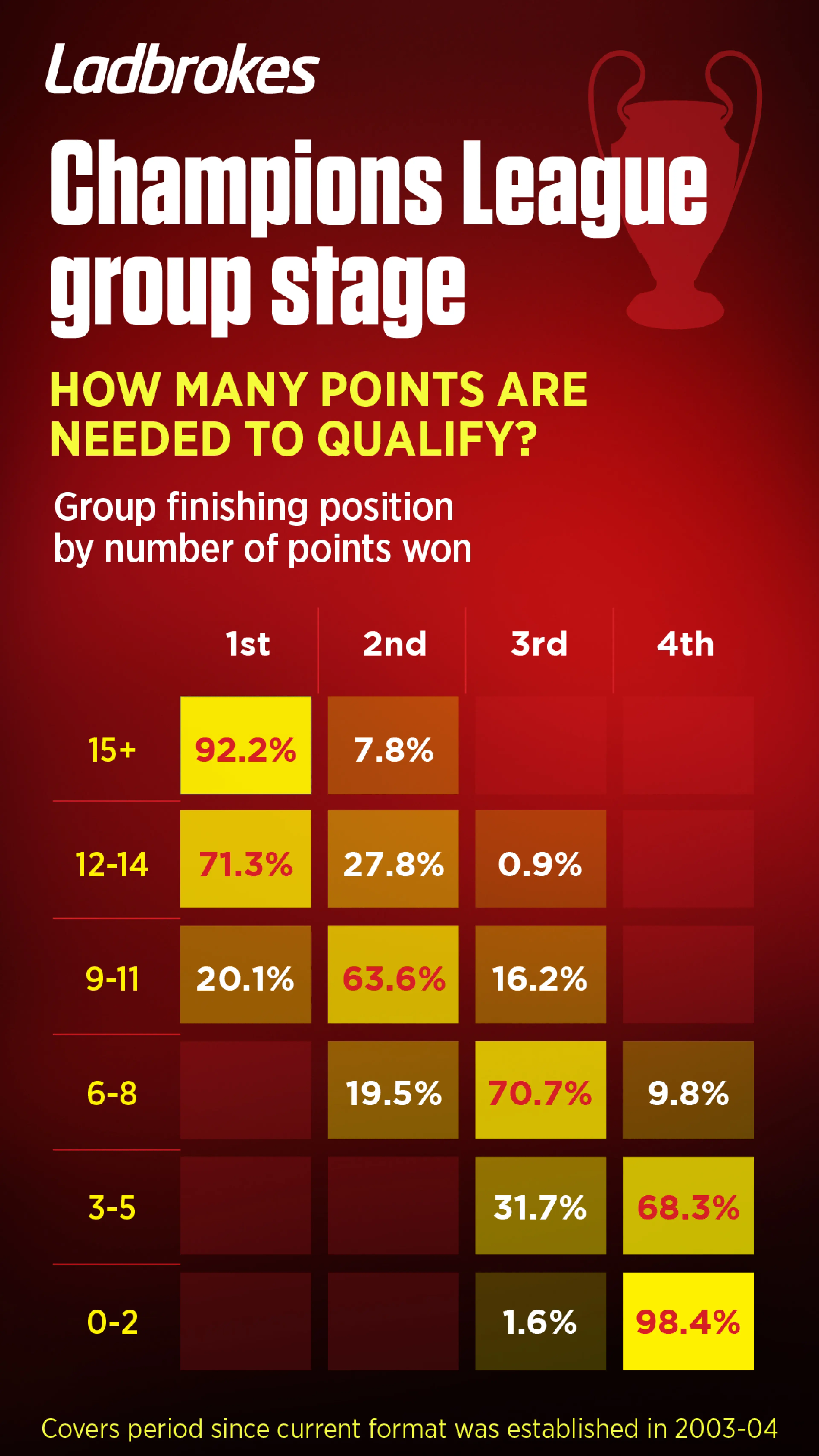
On the flipside, 11 teams have failed to finish in the top two after reaching double digits, including an especially unfortunate Napoli side in 2013-14, who won four out of six games but still ended third behind Borussia Dortmund and Arsenal.
How important is it to win the group?
Any team with designs on reaching the latter stages of this year’s Champions League will have a better chance of doing so if they win their group.
Since 2003-04, 36 per cent of group winners have gone on to make the semi-finals, compared with 14 per cent of runners-up. In fact, more than two-thirds of sides finishing second in their group have fallen at the first hurdle by losing to a group winner in the last 16.
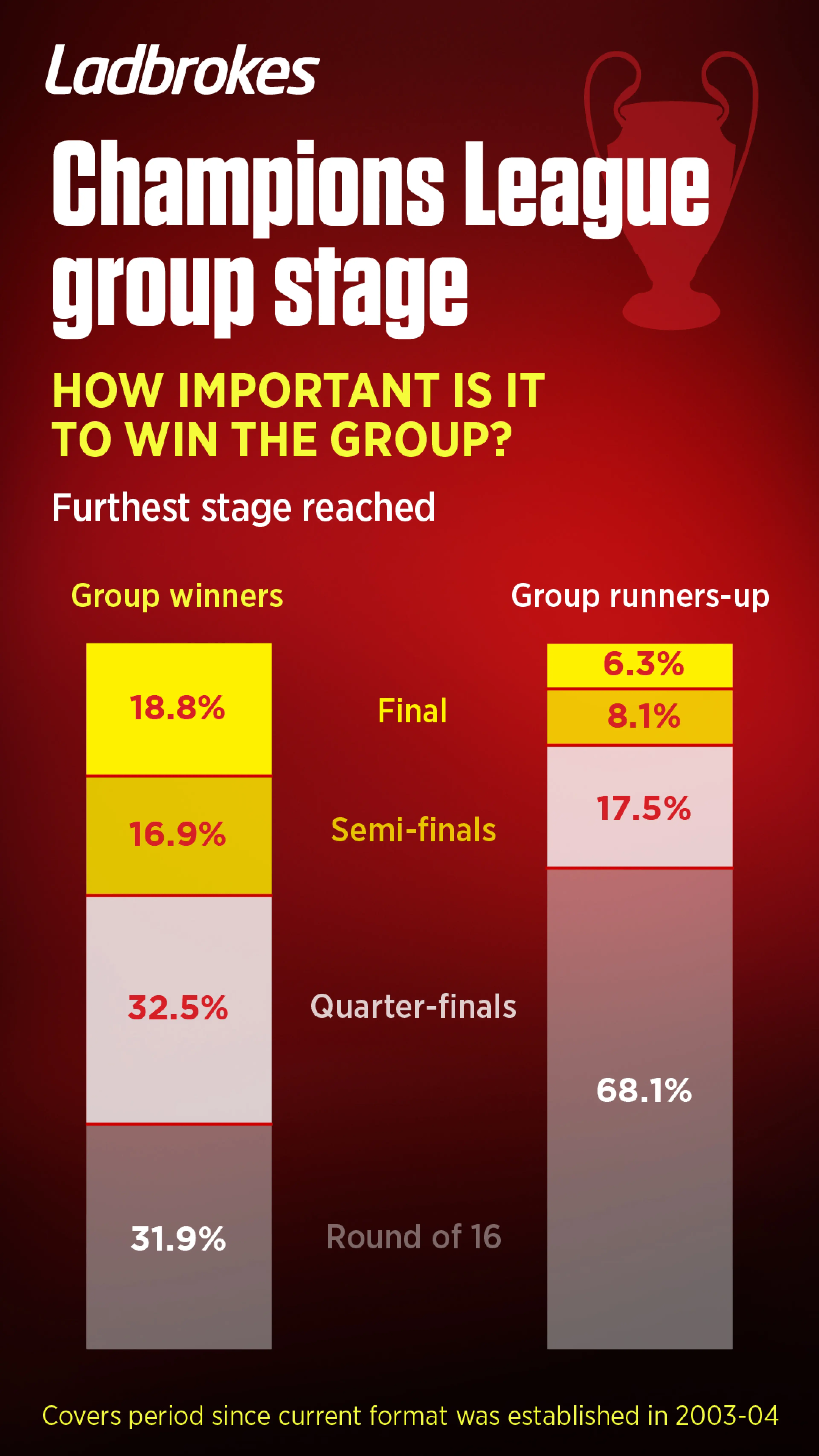
Inter bucked the trend in 2022-23 by reaching the final despite finishing behind Bayern Munich in Group C, but six of their seven fellow runners-up were knocked out in the round of 16.
Will we see lots of one-sided matches?
The gap between the Champions League’s heavy hitters and its minnows is widening.
Last season saw 16 of the 96 group stage matches won by a margin of four or more goals, the most since the competition switched to its current format in 2003-04.
This marks the continuation of a recent trend, with nine of the last 10 seasons having seen at least 10 four-goal thrashings, compared with one in 10 during the previous decade.

Rangers made history in 2022-23 for all the wrong reasons, with heavy losses against Liverpool and Ajax contributing to the worst group stage record in the Champions League era. They were one of three teams to be beaten by four-plus goals on multiple occasions, along with Maccabi Haifa (twice) and Viktoria Plzen (three times).
Of teams that inflicted four-goal defeats, only Manchester City and AC Milan did so more than once. City crushed Sevilla and Copenhagen in two of their opening three matches, while Milan finished with back-to-back 4-0 wins over Dinamo Zagreb and Red Bull Salzburg to qualify behind Chelsea.
Group-stage specialists Bayern Munich were the standout performers, however, becoming just the seventh team to go through with maximum points since 2003-04.
Five of the perfect winning records have occurred in the last four seasons, with Bayern now responsible for three of them.
